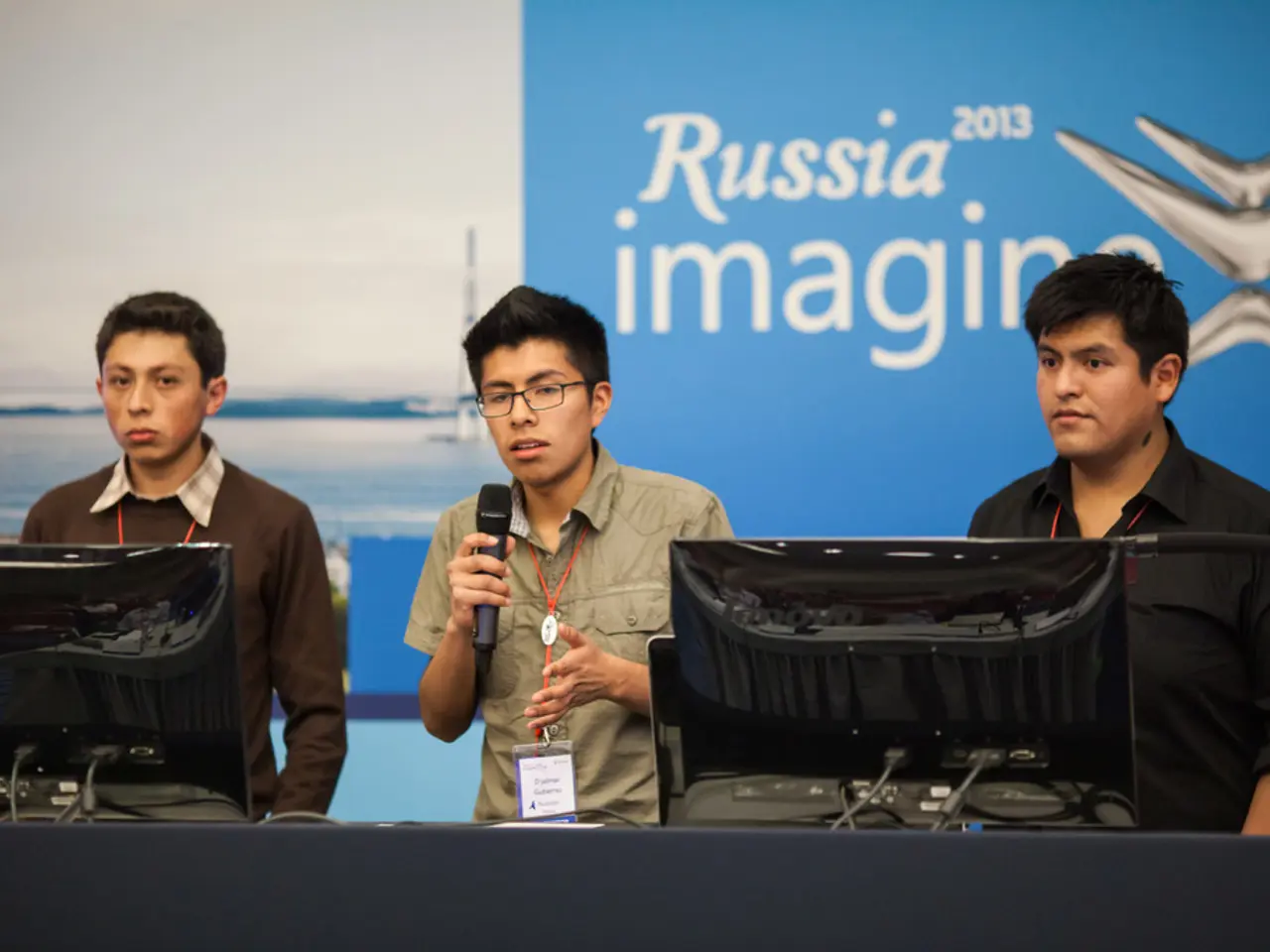Dispute over border authenticity confronted by DES in countering misinformation
Thai Ministry Cracks Down on Fake News About Border Conflict
The Thai Ministry of Digital Economy and Society (DES) has taken active measures to combat fake news and disinformation related to the Thai-Cambodian border conflict. The ministry has established an Anti-Fake News Centre (AFNC) that uses artificial intelligence (AI) to detect and block misinformation on social media platforms.
During the Thai-Cambodian border conflict, the DES Ministry has intensified 24-hour monitoring of disinformation campaigns, believed to originate mainly from Cambodian IP addresses. These campaigns involve fake accounts flooding Thai media pages with spam, false reports, coordinated mass reporting to trigger content removal, and spreading misleading claims.
The DES Ministry works alongside the National Broadcasting and Telecommunications Commission (NBTC), the military, police, and legal authorities to verify and pursue legal actions against those spreading fake news. Measures include using AI to detect fake news and block harmful content on social media, increasing dedicated fact-checking personnel, and cooperating with social media companies to identify and suspend fake accounts and abusive mass-reporting efforts.
Geo-blocking access from Cambodian IPs on affected Thai media social pages has also been implemented to prevent further attacks. Continuous cyber threat monitoring under direction from the National Cyber Security Committee and the National Security Council is also in place.
The scale of misinformation detected has been substantial, with nearly one million suspect messages identified in a recent week-long monitoring period. Key misinformation includes false reports of violent incidents allegedly involving soldiers, which the Ministry warns could cause public panic.
The DES Ministry's approach is comprehensive, combining technological solutions, collaboration with platforms, inter-agency coordination, and legal enforcement to maintain information integrity during the sensitive border conflict.
In addition, more manpower will be used to enforce anti-fake news measures. A rapid-response protocol has been approved, mandating factual corrections of fake news within three hours after detection and verification. The committee has also agreed to strengthen online identity verification, requiring companies to be verified for ad placements.
The government's capacity to detect and act on such disinformation has increased significantly with improved technology. The National Broadcasting and Telecommunications Commission (NBTC) has been assigned to investigate service providers involved in IO activities. AI technology will be deployed to detect and block fake news across all channels.
The DES Ministry is working with various platforms to combat fake news and disinformation about the Thai-Cambodian border conflict. The ministry held discussions with major social media platforms on Tuesday to seek cooperation in detecting and removing false information and IO-related accounts. The platforms responded positively, and several important agreements were reached. The DES Ministry and the Public Relations Department will coordinate closely for timely communication and continuous monitoring. The ministry's collaboration with the Electronic Transactions Development Agency (ETDA) for notification and takedown of IO-related accounts remains in place. The NBTC will report these findings to the committee.
Since 2019, the ministry has logged 1.1 billion suspected pieces of fake news for review and analysis. False online information related to border disputes has a three-hour detection goal after 1.1 billion suspected cases were detected over the past five years. IO cases or psychological operation content will be referred to the Electronic Transactions Development Agency (ETDA) for notification and takedown via platform coordination.
- The Thai Ministry of Digital Economy and Society, in its ongoing efforts against disinformation, is collaborating with various platforms to implement technology that can detect and block fake news related to education-and-self-development topics.
- As part of their comprehensive approach, the DES Ministry is also focusing on strengthening online identity verification, requiring companies to be verified for ad placements to prevent the spread of misinformation.




